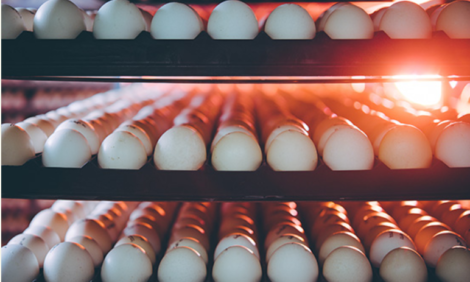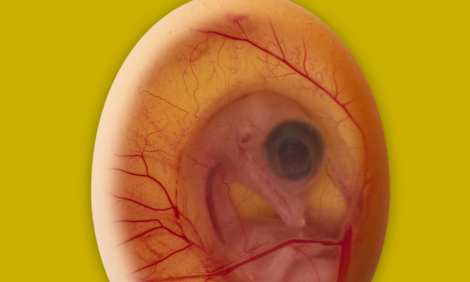



USDA awards research grant to study heat stress in poultry
The study will look at information contained within the red blood cellsThe U.S. Department of Agriculture’s National Institute of Food and Agriculture has awarded Karthik Nayani a research grant nearing $300,000 to develop a rapid reporting method of heat stress in poultry. Nayani is an assistant professor in the Ralph E. Martin Department of Chemical Engineering at the University of Arkansas.
Heat stress negatively affects the growth and development of broiler chickens, a staple in worldwide meat production. It is a common challenge in the summer for poultry farmers in Arkansas and other regions of the country where poultry farming is a key food source and industry. By studying the red blood cells of healthy and heat stressed chickens, Nayani’s research will build an experimental data set and develop a rapid reporting technique.

Information contained within the red blood cells — dispersed in liquid crystals — will be processed using convolutional neural networks. This type of network works like an algorithm that can read an image and assign it a label. In this case, molecular signatures of heat stress are the image that can be read in order to classify whether heat stress is being experienced.
In the end, this research could help farmers more quickly determine whether their poultry is affected by heat stress than the methods currently available. Nayani’s research will focus on broiler chickens, but this method can be conveyed to other types of livestock.
“Interfacing soft objects, such as cells, with functional materials, like liquid crystals, is a key theme in my lab,” Nayani said. “Imaging liquid crystals with red blood cells within them provides feature-rich images well suited for classification with neural networks to reveal hidden connections. The goal of this work is to determine if certain features in these images can be connected to molecular signatures of heat stress.”
Nayani continued, “In the long term, we hope to provide fundamental insights into developing a rapid reporting device that can readily identify the presence of heat stress in poultry.”
“The impacts of the research being carried out by Karthik Nayani on poultry health has the potential to significantly impact our state, as Arkansas is a leading producer of poultry in the United States,” stated Keisha Bishop Walters, Chemical Engineering Department head at the U of A. She also indicated that “research related to animal agriculture is important to economic development, as the poultry industry is responsible for 40,000 jobs across the state.”
The National Institute of Food and Agriculture is a federal agency that provides funding for agricultural research, education and extension. Created in 2008, the agency’s funding efforts are focused on agricultural challenges on the individual and national level.
Nayani joined the Chemical Engineering Department in the fall of 2020 and holds the Louis Owen Professorship in Chemical Engineering. His research interests include soft materials, biomaterials and self-assembly. He received his Ph.D. from the Georgia Institute of Technology and was a postdoctoral scholar at Cornell University prior to arriving at the U of Arkansas.
Sami Dridi, professor in the Department of Poultry Science, and Ukash Nakarmi, assistant professor in the Department of Computer Science and Computer Engineering at the U of A, are co-investigators on the project.








